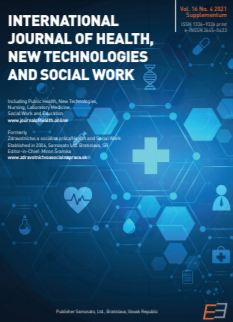Nervous System Response to SARS-CoV-2 Infection
Nervous System Response to SARS-CoV-2 Infection
Author(s): Miron Šramka, Eugen Ružický, Ján Mašán, Jaroslava LeškováSubject(s): Methodology and research technology, Health and medicine and law, Present Times (2010 - today), ICT Information and Communications Technologies
Published by: SAMOSATO, s. r. o., Bratislava, Slovensko - MAUREA, s. r. o., Plzeň, Česká republika
Keywords: Post-COVID-19 syndrome; nervous system disorders; neurodegenerative diseases; fatigue; sleep disorders;
Summary/Abstract: Introduction: The Coronavirus (COVID-19) disease has caused a global pandemic over the past year, accompanied by various neurological manifestations. The SARSCoV-2 virus may be regarded as an opportunistic pathogen of the brain. It enters the intracranium through the olfactory ganglion cell, retrograde axonal transport from peripheral nerve endings, or via haematogenous or lymphatic routes. Main body: The COVID-19 infection can cause neurological disorders, encephalopathy, impaired consciousness, confusion, agitation, seizures, ataxia, headache, anosmia, ageusia, neuropathies, and neurodegenerative diseases. The majority of the infected cases were asymptomatic or displayed flu-like symptoms, such as shortness of breath, fever, sore throat, cough, myalgia, loss of taste and smell, fatigue, and sleep disturbances. More than one-third of patients developed neurological symptoms affecting the central nervous system, peripheral neural system, and skeletal muscles. The common risk factors include neurodegenerative diseases, genetic variations, cerebrovascular diseases, and metabolic risk factors such as diabetes mellitus or hyperlipidaemia. The present article provides the latest findings in this field. Conclusion: The consequences of the disease include the need to receive long-term care and professional rehabilitation. From a neurological and psychological point of view, the monitoring of patients with acute post-COVID-19 syndrome will facilitate the provision of professional rehabilitation for nervous, motor-skill, and psychological problems. It will make it possible to use telerehabilitation and artificial intelligence to provide optimal treatment to patients.
Journal: International Journal of Health, New Technologies and Social Work
- Issue Year: 16/2021
- Issue No: 4
- Page Range: 159-171
- Page Count: 13
- Language: English

